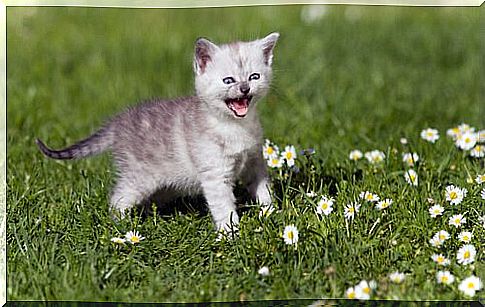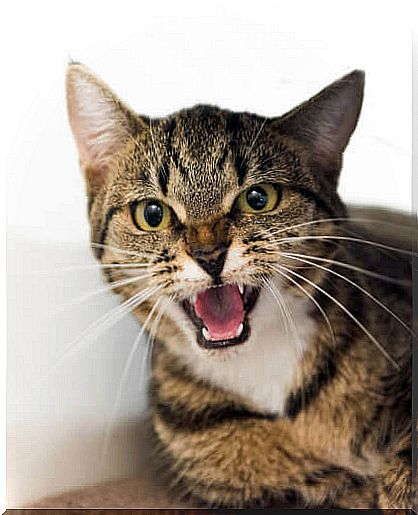All About Cats Meowing

Domestic cats are very intelligent beings and they know very well how to make themselves understood by their peers, other animals and even their owners. Not surprisingly, the meow of cats is a very effective communication tool.
However, it is not the only one anyway. Combined with the movement of the tail, the expression of the visa and sound signals such as purring, the meow of cats allows people to better understand the needs of their four-legged friend. And, in this article, we will show you all its secrets.
How do cats communicate?
To know what they want or what happens to their pets, people can pay attention to both their body language and the facial expressions and sounds they make. This is how you can see, for example, if your cats are angry, scared or if they feel comfortable and completely at ease.
Defining the meow as “the cat’s voice” is not entirely appropriate, however. In fact, its issue can change, depending on the situation and the interlocutor, making it a much more complete communication tool.
Furthermore, it is only one of the many sound manifestations of these animals. Hissing, purring, snorting, grunting, and even moaning and crying expressions should also be taken into account.
On the other hand, those who know their cat friends well know that each cat has its own way of communicating. It can be said that no one cat is the same as another. And this is also evident in the way they meow.
A language that adapts to the circumstances
Contrary to what many believe, meowing is not a form of communication that cats only use with people. They also use it with their peers and with other members of the animal kingdom.

However, some animal behavior studies show that these lovely animals know how to manipulate their owners through meowing. They are smart and use their “Meow” in the hope that, sooner or later, it will allow them to get what they want from the people they share the house with.
The truth is that with the intelligence and sensitivity that characterize them, cats who live with humans and other pets soon learn the best way to make themselves understood. And, when they meow, they do so using a different tone, volume, intensity, or duration. Depending on each specific case.
Why do cats meow?
It is estimated that cats are able to emit 60 to 70 different meows. They use them to convey emotions, moods, feelings, needs and desires. Their meow is used in different circumstances and can be understood in many ways:
- As a way to say hello: They can show joy when they see their master.
- To ask for food, that it opens a door, etc. In this case, they start with gentle meows that can become more persistent and even nervous if their request is not met right away.
- When they don’t want to be bothered : Meows get hoarse and even make snorts as they arch their bodies.
- If they want to be pampered. Under these circumstances they make short, soft sounds and rub their heads and cheeks against their owners. And, most likely, they purr.

The meow to communicate between cats
Beyond the relationship with people, meowing also serves :
- In communication between mothers and puppies. Both adults and children use this sound for different situations (fright, hunger, punishment, warning of danger, etc.).
- When the females are in heat. The cats meow loudly and repeatedly in order to attract the attention of the males.
- As a threat before or during a fight. Here the tone and intensity of the meow take on absolutely intimidating levels.
More details on cats meow
While it is normal for some cats to be more talkative than others, in some cases they can meow excessively or do it strangely. If this happens, you will need to find out why and correct it. A good idea is to consult with your vet.
Among the reasons why kittens express themselves vocally, beyond what is considered normal, we can highlight:
- Boredom. When they don’t get enough physical activity or play little, they start walking around the house and meow loudly and repetitively.
- Fear or stress. It can happen that some situations alter the animal – moving, the presence of strangers, the death of a loved one, various changes – and the meow is a way to express a certain discomfort.
- Illness. It may happen that your cat stops meowing completely or, conversely, does so for an unusually prolonged period.









